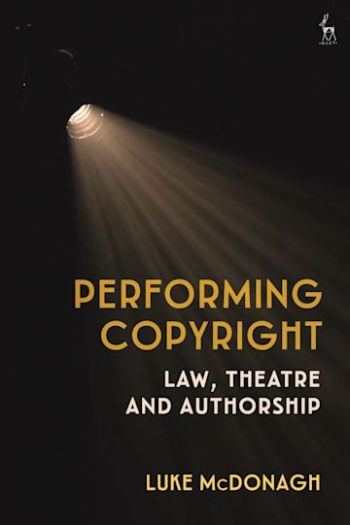
Based on empirical research, this innovative book explores issues of performativity and authorship in the theatre world under copyright law and addresses several inter-connected questions: who is the author and first owner of a dramatic work? Who gets the credit and the licensing rights? What rights do the performers of the work have? Given the nature of theatre as a medium reliant on the re-use of prior existing works, tropes, themes and plots, what happens if an allegation of copyright infringement is made against a playwright? Furthermore, who possesses moral rights over the work?
To evaluate these questions in the context of theatre, the first part of the book examines the history of the dramatic work both as text and as performative work. The second part explores the notions of authorship and joint authorship under copyright law as they apply to the actual process of creating plays, referring to legal and theatrical literature, as well as empirical research. The third part looks at the notion of copyright infringement in the context of theatre, noting that cases of alleged theatrical infringement reach the courts comparatively rarely in comparison with music cases, and assessing the reasons for this with respect to empirical research. The fourth part examines the way moral rights of attribution and integrity work in the context of theatre. The book concludes with a prescriptive comment on how law should respond to the challenges provided by the theatrical context, and how theatre should respond to law.
Very original and innovative, this book proposes a ground-breaking empirical approach to study the implications of copyright law in society and makes a wonderful case for the need to consider the reciprocal influence between law and practice.